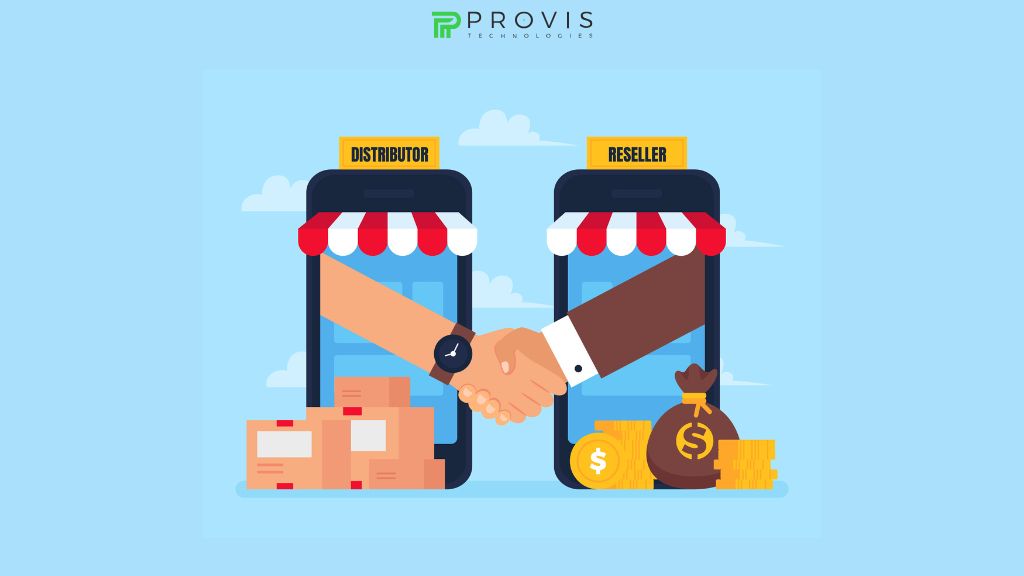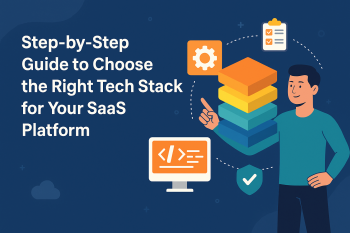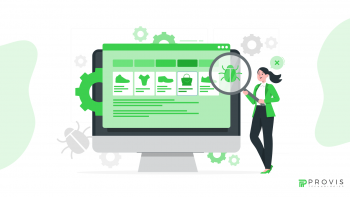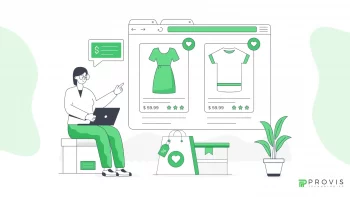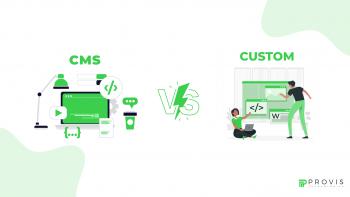Introduction
In the fast-paced world of B2B e-commerce, mobile app development is no longer a luxury—it’s a necessity. Businesses are turning to mobile apps to streamline operations, enhance customer experiences, and increase overall sales.
Mobile apps not only provide a convenient and efficient platform for users but also allow B2B companies to create personalized experiences that foster better relationships with clients and partners.
In this article, we’ll explore why mobile app development is crucial for the success of B2B e-commerce businesses and how it can drive growth, improve user engagement, and offer a competitive edge.
1. Streamlined and Convenient Shopping Experience
One of the most significant advantages of having a mobile app for your B2B e-commerce platform is the convenience it offers.
Why It Matters
Business buyers are constantly on the go, attending meetings, visiting factories, and traveling between locations. Having a mobile app means they can place orders, track shipments, and access important information from anywhere, anytime.
What It Brings to Your Business
• Access on-the-go: Business buyers no longer need to wait until they’re back at their desks to place an order.
• Simplified Ordering: Through a mobile app, customers can place bulk orders quickly and review their purchase history for easy reordering.
• Faster Decisions: With all the information they need right at their fingertips, your customers can make quick, informed decisions, which leads to faster sales cycles.
2. Increased Customer Engagement
A mobile app gives your business the opportunity to engage with customers in real-time and offer them a personalized experience.
Why It Matters
B2B customers expect the same level of service and convenience as B2C shoppers, and mobile apps are an excellent way to meet those expectations.
How It Benefits Your Business
• Push Notifications: You can send targeted push notifications to remind customers about restocks, order updates, special promotions, and more.
• Tailored Content: With mobile apps, you can customize the user experience, showing only the most relevant products or services based on their past purchasing behavior.
• Enhanced Communication: Mobile apps make it easier to communicate directly with your customers through messaging or integrated chat features, ensuring quicker responses and better customer service.
3. Improved Efficiency and Automation
Mobile apps can automate many time-consuming tasks and processes that are often a burden in B2B e-commerce.
Why It Matters
Manual operations and slow processes can lead to mistakes and delays in delivery, which negatively impacts both customer satisfaction and your bottom line.
How It Improves Efficiency
• Automated Reordering: Mobile apps can allow customers to set up automated reordering based on their purchase history, reducing the effort they need to place repeat orders.
• Inventory Management: Apps can connect to your inventory system, providing real-time stock updates and alerts when products are low.
• Order Tracking: Customers can track their orders and shipments instantly, reducing the need for calls to your support team.
4. Better Personalization and Customization
In the B2B world, each customer may have unique preferences and requirements. Mobile apps allow you to provide tailored experiences, which can help foster stronger, longer-term relationships.
Why It Matters
Personalization plays a significant role in customer retention and satisfaction. A mobile app offers the flexibility to adapt to each client’s specific needs.
Benefits of Personalization
• Custom Pricing: For each client, you can offer personalized pricing models based on their order volume or loyalty status.
• Customized Offers: Offer exclusive discounts or promotions tailored to specific users based on their previous interactions with your business.
• Custom Catalogs: Present customers with a catalog that only includes the products they are likely to be interested in, based on their industry and purchasing history.
5. Enhanced Data Collection and Analytics
One of the biggest advantages of mobile app development is the ability to collect and analyze data on how users interact with your platform.
Why It Matters
Understanding your customers’ behaviors, preferences, and buying patterns is essential to making better decisions and improving your sales strategy.
How It Helps Your Business
• User Behavior Insights: Mobile apps allow you to track how often a customer uses the app, what products they look at, and how they navigate through the platform.
• Data-Driven Decisions: Using this data, you can make informed decisions to optimize your offerings, whether that means adjusting your pricing, adding new products, or refining your marketing campaigns.
• Better Marketing: The data collected can also help with personalized marketing strategies, targeting the right customers with the right message at the right time.
6. Scalability and Growth
Mobile apps are designed to grow with your business. As your B2B e-commerce platform scales, your app can evolve to meet the growing needs of your customers.
Why It Matters
As your business grows, managing customers and keeping track of multiple orders, products, and services can become more complex. A scalable mobile app can handle this complexity seamlessly.
How It Contributes to Growth
• Easier Expansion: Mobile apps can accommodate new products, regions, and features without major overhauls.
• Increased Capacity: Whether you’re adding new product lines, international shipping, or bulk order options, mobile apps can handle the increased workload.
• Flexible Integration: Mobile apps can integrate with other tools and platforms like ERP, CRM, or inventory management systems, helping streamline your operations.
7. Competitive Advantage
In a crowded B2B market, offering a mobile app can give your business a competitive edge over others who are still relying on outdated systems or desktop-only websites.
Why It Matters
Customers today are looking for businesses that can offer them convenience, efficiency, and personalization. If your competitors aren’t using mobile apps, offering one could be a decisive factor in winning new clients.
How It Benefits Your Business
• Better Customer Loyalty: Customers who have easy access to your platform are more likely to continue doing business with you.
• Stand Out in the Market: Providing a seamless mobile experience shows customers that you are innovative and customer-centric.
• Build Stronger Relationships: Mobile apps enable constant engagement, which helps foster deeper relationships with your customers.
Conclusion
In today’s competitive B2B e-commerce environment, mobile app development is crucial for success. Mobile apps provide a more convenient, personalized experience, improve operational efficiency, and offer a competitive edge.
By investing in a mobile app, businesses can ensure that they are meeting the demands of modern buyers, enhancing customer loyalty, and positioning themselves for long-term growth.
FAQs About Mobile App Development for B2B E-commerce
1. Why should B2B businesses develop a mobile app?
A mobile app offers convenience, personalization, and improved efficiency, all of which enhance customer experience and retention in B2B e-commerce.
2. How can a mobile app improve customer engagement in B2B e-commerce?
By sending push notifications, providing personalized content, and offering real-time communication, a mobile app keeps customers engaged with your brand.
3. Can a mobile app help with inventory management?
Yes, mobile apps can integrate with your inventory system, providing real-time updates on stock levels and alerts for low inventory.
4. Is mobile app development cost-effective for B2B companies?
While the initial investment may seem high, the long-term benefits such as increased sales, efficiency, and customer retention make it a worthwhile investment.
5. How can mobile app data help improve B2B e-commerce?
The data collected from a mobile app helps businesses understand customer behavior, improve product offerings, and create personalized marketing strategies.
Written By
Author's Picks
- What is Wix Website Builder and How to Use It
- 17/11/2024
- eCommerce Site Speed: The Silent Killer of Sales & How to Fix It Fast!
- 02/04/2025
- What is a Lean Canvas? Purpose, Key Metrics & Model
- 14/01/2025
Categories
- AI for Startups
- AI in Web Development
- AI Integration
- AI Platforms
- AI Prompt
- AI Tools
- AI Trading Software
- Android App
- Android vs iOS Development
- Angular
- API
- API Development
- App
- app development
- App Idea
- App User Feedback
- Application
- Artificial Intelligence
- Audit Services
- Automotive Industry
- Awards and Recognition
- Business Consulting
- Business Website
- Chatbots
- CRM
- CRM for Financial Advisors
- Custom CRM
- Custom SaaS
- Custom Website
- Customer Service
- dashboard design
- Developing a Mobile App
- Digital Business
- E-commerce
- EMR Integration
- Finance
- Financial Advisors
- Financial Advisors
- GIT
- Health Insurance
- iOS App
- iOS App Development
- IoT Mobile App Development
- IoT Platforms
- IT Audit Services
- IT Consulting
- IT Strategies
- Java Development
- Laravel
- Lean Canvas
- Learning Management System
- Logistics Apps
- Mobile App Development
- MVP
- Native App
- News Aggregator Site
- OTT
- Outsourcing IT
- Payment Gateway
- predictive analysis
- Product Launch Strategy
- Progressive Web App (PWA)
- Prototype
- Recommender Systems
- Ruby
- SaaS
- SaaS Application
- SaaS Business
- SaaS Company
- SaaS Development
- SaaS Product
- SaaS Project
- Sales Funnel
- SEO
- Shopping Cart
- Software Development
- SSL and TLS
- Startup Checklist
- Technology
- Tetradic Color Scheme
- UI/UX Design Company
- Unit Testing
- User Flow
- User Testing
- Web Development
- Web Performance Optimization
- website Maintenance Services
- Website Migration Service
- Website Speed Optimization
- WooCommerce
- WordPress
